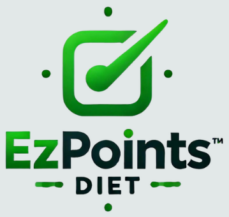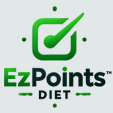Skip to content
EzPoints™Diet Food Definitions:
- Vegetables: Non-starchy vegetables. Exclude potatoes and corn.
- Fruits: Canned, fresh, or frozen with no added sugar. Exclude dried or sugar added fruits, and fruit juices.
- Lean Protein: Low-fat animal and plant-based protein sources including skinless poultry, pork tenderloin, veal loin, trimmed sirloin, and lean ground meats (93% lean or higher), such as beef and turkey. Fish like cod, tilapia, flounder, and high omega-fatty-acid fishes (salmon, mackerel, sardines, herring, oil-free tuna) also qualify. These omega-rich fishes are counted both as lean proteins and healthy fats. Low-fat dairy options such as skim milk, low-fat yogurt, part-skim mozzarella cheese, and low-fat cottage cheese and plant-based options like tofu and other high-protein meat analogs. To qualify as lean, proteins must contain no more than 6 grams of fat per serving. Proteins with more than 6 grams of fat per serving are not considered lean. Higher fat meats like ribeye steak, lamb chops, and regular ground beef (70% lean), as well as dark chicken meat with skin, duck, and full-fat dairy products (e.g., cheddar, brie, gouda cheeses, and full-fat yogurts) are not considered lean proteins. Processed meats such as bacon, sausages, and salami with more than 6 grams of fat per serving do not qualify as lean proteins.
- Legumes, Beans, Peas, & Lentils: Chickpeas, black beans, pinto beans, white beans, lima beans, fat-free refried beans, edamame, green peas, red or green lentils.
- 100% Whole Grains: Foods made entirely from unrefined grains. These foods retain all parts of the seed (bran, germ, and endosperm) and provide essential nutrients such as fiber, protein, and minerals. Examples include whole grain brown rice, quinoa, corn, oats, and popcorn (without added butter or oil). Only products specifically labeled as “100% Whole Grain” are considered true whole grains. Whole grain bread and pasta often may contain refined grains and would not be classified as 100% whole grain unless the label explicitly states otherwise. Ensure the label states “100% Whole Grain” to count it within the 100% Whole Grain category.
- Nuts & Seeds (Paleo Friendly Plan ONLY): Permitted nuts include almonds, walnuts, cashews, macadamia nuts, and pecans. Acceptable seeds are chia, flax, pumpkin, sunflower, and hemp. These nuts or seeds should not be coated with additional sugars or heavily processed flavorings.
- Bonus Points: Healthy-Fat Foods: High omega-3 foods such as flaxseeds, chia seeds, walnuts, hemp seeds, algal oils, and fish oils. Include high omega-fatty-acid sources like salmon, mackerel, sardines, and herring. Limit to a maximum of 2 servings of these healthy fats per week. Note: Foods high in protein and omega-3s, like certain fish, count towards both your lean protein and healthy fat intake.
- High Sugar Foods: Any food containing more than 7 grams of added sugar per serving. Examples include candies, chocolate bars, jellies, syrups, and other sweets. This category also includes juices and juice drinks, sweetened beverages, dried fruits, and preserves. This category is reserved for products where sugar is a dominant ingredient by taste and content, which primarily contributes to the overall caloric intake. Pay close attention to labels, as high sugar content can significantly impact health, contributing to increased risks for diabetes, obesity, and heart disease.
- Refined Grains: Foods where refined grains are listed as one of the first three ingredients. Examples include white bread, white rice, non-whole grain pasta, and breakfast cereals where one of the first three ingredient is a refined grain like wheat flour or rice. If a cereal or similar product lists a refined grain as the first ingredient but also contains added sugars, it still falls under the refined grain category because the primary ingredient reflects its classification as a refined grain product.
- High Fat Foods: Defined as foods containing more than 5 grams of fat per serving. For high protein foods (those with at least 10 grams of protein per serving), the fat threshold is increased to more than 8 grams per serving. This categorization helps participants identify which foods to moderate, balancing dietary fat with essential protein intake.
- Fried or Oil Coated Foods: This category includes any foods that are cooked by deep-frying or pan-frying in oil. It also encompasses prepared snack foods that are oil-coated, or oil-fried, such as potato chips, cheese curls, and popcorn that is not air-popped.
- Alcoholic Beverages: 12 ounces of beer, 5 ounces of wine, 1.5 ounces of distilled spirits.


